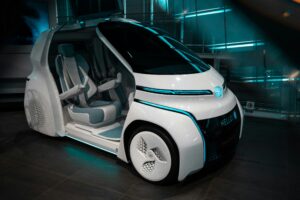Picture this: you’re cruising down the highway, enjoying your drive when suddenly your car alerts you to a potential collision up ahead. Thanks to the latest advancements in autonomous vehicle technology, your car has seamlessly communicated with the surrounding vehicles and taken preventive action to avoid a dangerous situation. This scenario may sound like something out of a science fiction movie, but it’s quickly becoming a reality in today’s rapidly evolving tech landscape.
With companies like Tesla, Google, and Uber leading the charge in developing self-driving cars, the future of transportation is looking more automated than ever before. According to a report by Allied Market Research, the global autonomous vehicle market is projected to reach $556.67 billion by 2026, with a compound annual growth rate of 39.47% from 2019 to 2026.
But what does this mean for traditional car manufacturers and the automotive industry as a whole? As Ford CEO Jim Hackett puts it, “We have to rethink how we deliver value. It’s no longer just about the hardware but also the software and services that come with it.” Indeed, the rise of autonomous vehicles is not just transforming the way we travel but also challenging conventional business models and paving the way for new opportunities in mobility services and technology integration.
As we look towards a future where cars drive themselves and human error becomes a thing of the past, one thing is clear: the road ahead is bound to be paved with innovation and endless possibilities.



